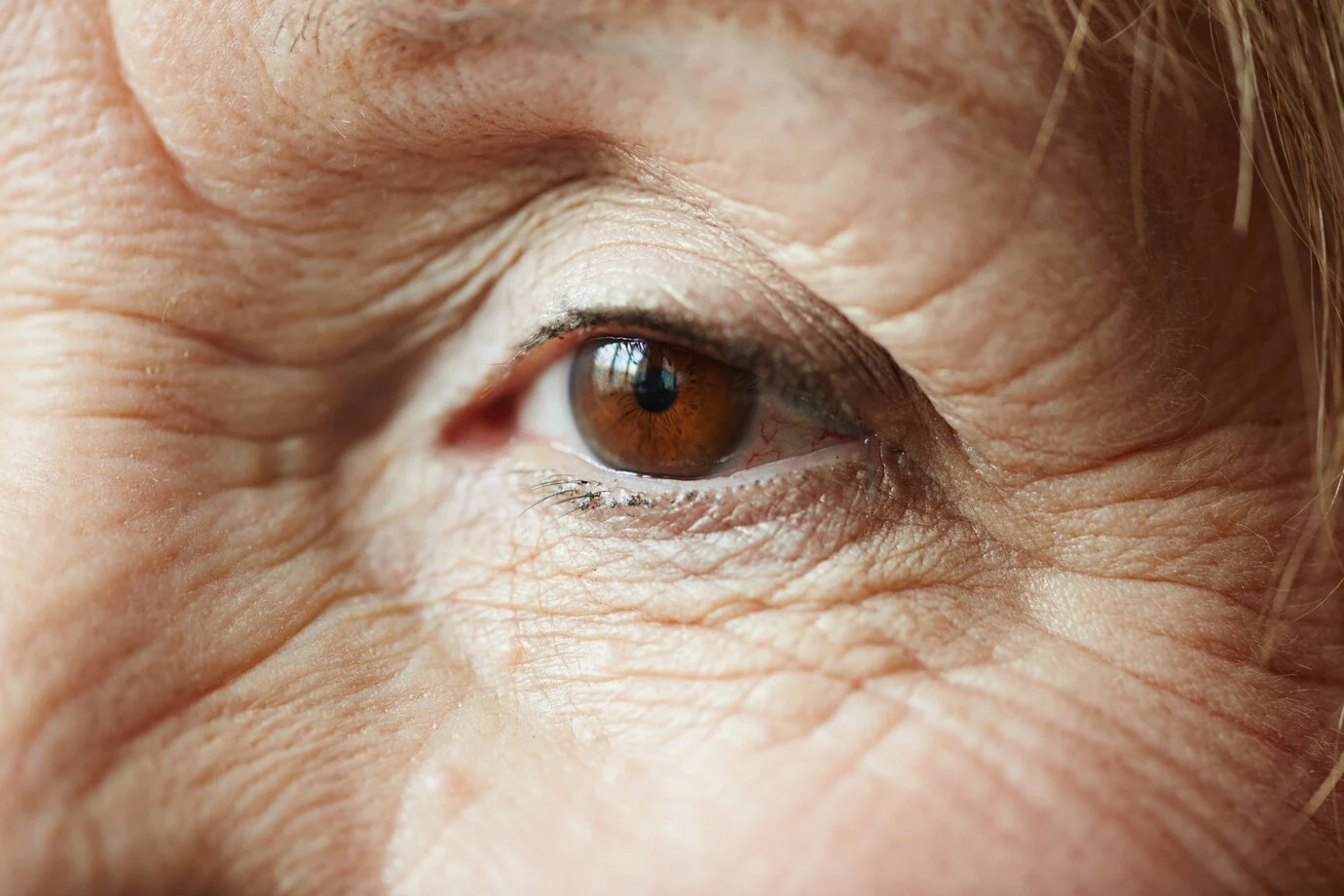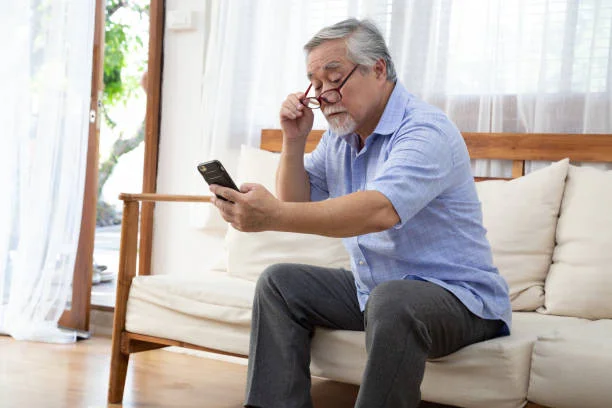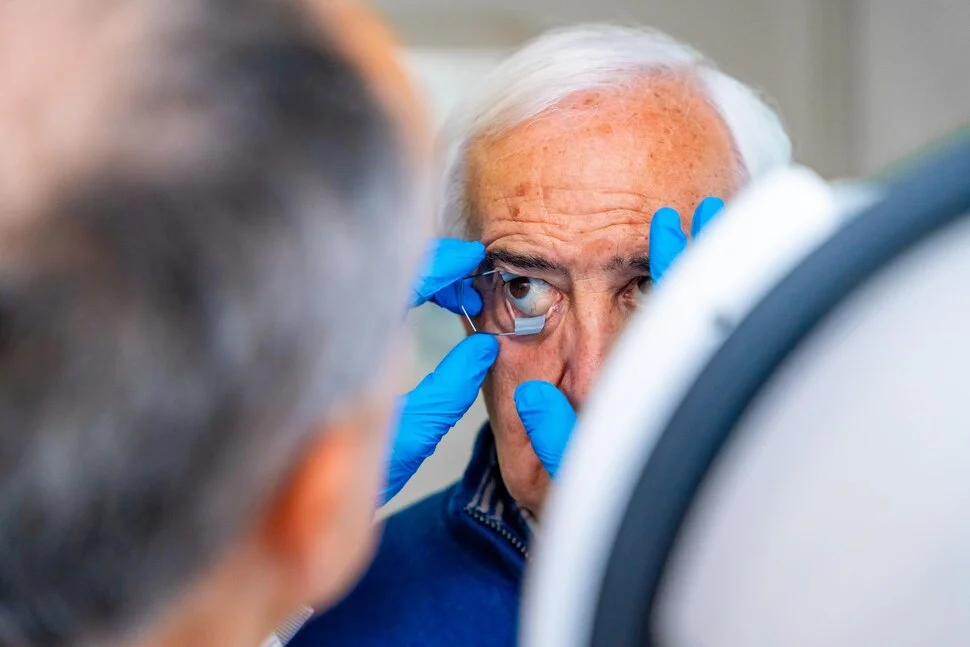Vision is one of our most important senses, and it changes as we age. After 60, the risk of eye conditions such as cataracts, glaucoma, or macular degeneration increases, which is why maintaining eye health is essential. Clear vision supports independence, safety, and quality of life.
At Elite Eye Care, we help older adults adopt habits that keep their vision strong. In this article, we’ll share practical tips for eye care, highlight the importance of caring for eyes, and explain how to protect vision well into later years.

Why Eye Health is Important After Age 60
As we age, our eyes experience changes. The lens of the eye becomes less flexible, making it harder to see things up close. Tear production is reduced, and you become more sensitive to glare. Some changes in our vision are common, and many are not serious, but some changes illustrate a more serious condition.
By paying attention to eye health, seniors can identify problems early, receive treatment in a timely manner, and not lose their confidence. Practicing eye health is just as important as having a healthy balanced diet and regular exercise.
Eye Problems Seniors are Likely to Encounter as They Age:
Eye Problems Seniors are Likely to Encounter as They Age:
Cataracts: Clouding of the lens that causes blurry or dim vision.
Glaucoma: Damage to the optic nerve most often related to pressure in the eye.
Age-related macular degeneration (AMD): Loss of central vision that affects reading and recognizing faces.
Diabetic retinopathy: Damage to the retina because of diabetes.
Dry eyes: A very common condition due to a decrease in tear production
Eyesight problems often develop slowly and sometimes; they are not noticeable. Therefore, among the many reasons for having regular vision screening is to identify any problems before they develop significantly.
Tips for Eye Care After 60
1. Schedule Regular Eye Exams
Routine exams are the foundation of eye health. Eye doctors can detect problems before symptoms appear. Seniors should schedule eye exam appointments every one to two years, or more frequently with diabetes or a family history of eye dise
2. Protect Your Eyes Outdoors
Ultraviolet rays can speed up cataracts and macular degeneration. Sunglasses with 100% UV protection and wide-brimmed hats are simple ways of caring for eyes in bright sunlight. If you are wondering how to protect vision outdoors, UV-blocking eyewear is essential.
3. Focus on Nutrition
A diet rich in omega-3s, leafy greens, and antioxidants helps slow age-related changes. Adding these foods is one of the simplest tips for eye care and supports long-term wellness.

4. Manage Chronic Conditions
Diabetes, high blood pressure, and high cholesterol can all impact eyesight. Staying on top of these conditions is part of how to take care of your eyes and prevent complications.
5. Stay Active
Exercise promotes blood flow to the eyes and reduces risks such as glaucoma. Even light activity like walking or yoga can support eye health and overall well-being.
6. Reduce Digital Eye Strain
Many seniors now spend time on computers or phones. Prolonged screen use can cause discomfort. Following the 20-20-20 rule, every 20 minutes look 20 feet away for 20 seconds, helps ease eye focus issues and prevents fatigue.

Daily Practices for Healthy Eyes
In addition to examinations and treatment, further exercises can have a good impact:
- Stop smoking because it doubles the risk of both AMD and cataracts.
- Drink enough water to remain hydrated and keep the ocular surface wet.
- Sleep enough to repair the eyes and restock energy.
- Use an appropriate intensity of light when reading or working to limit eyestrain.
Implementing these practices makes a good basis for determining how to maintain eye health after 60.
The Emotional Effects of Vision Loss
Changes in vision impact more than one's eyesight. Senior adults with untreated eye vision problems may stop reading, driving, or even stop socializing. This leads to a feeling of being isolated from the mainstream and a lack of independence, through following tips of eye care and seeking help sooner than later, older adults can continue enjoying daily life activities when it is important to feel confident when doing so.

Conclusion
Once over the age of 60, eye health becomes a critical factor at living as independently and as fully as possible! While natural aging of the eye is expected, there are many aspects of vision issues related to aging that are treatable or can be avoided through preventative measures such as exams, lifestyle choices or treatments.
At Elite Eye Care we offer individualized attention, advanced diagnostics, and tangible direction on how to protect vision. Seniors can enjoy clarity, comfort and quality of life for years with the correct approach to caring for their eyes.
Are you ready to protect your eye health?
Create your own plan by booking your comprehensive senior eye exam with Elite Eye Care today! You will leave with your personalized care plan on how to take care of your eyes for future vision safety. Contact us.
